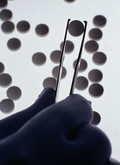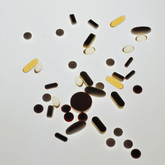Generics/Research
Ways to reduce drug costs in Australia
Drug costs in Australia are increasing at an alarming rate. This is driven mainly by expensive biological therapies, antiviral therapies for HIV and hepatitis C and new cancer treatments.
AES position statement on substitution of generic anti-epileptics
A paper by the American Epilepsy Society (AES) discusses how the society’s position on generics substitution of anti-epileptic drugs has changed according to the results of bioequivalence studies [1].
Reasons for the success of a generics company in the Sudan market
An exploratory, qualitative study carried out by colleagues from the University of Khartoum (Sudan) and Abertay University (UK) examined the reasons behind the success of a generics company that has been the market leader in Sudan for a decade from the perspective of employees and customers [1].
Pharmacists prefer generic OTC medicines
In the US, the use of generics has been lacking due to hesitation from consumers over whether generics are as safe and effective as brand-name medications. Pharmacists, on the other hand, have the education and training to know that generics are both safe and effective.
Enhancing prescribing efficiency in the Republic of Srpska
It has been claimed that countries with smaller populations have difficulties obtaining considerable price reductions for generics. However, evidence from the Republic of Srpska, which is one of the two constitutive entities of Bosnia and Herzegovina, with a population of only 1.43 million, proves otherwise [1].
Equivalence of generic immunosuppressants
There are no compelling pharmacological arguments against the sensible use of the generic immunosuppressants ciclosporin, tacrolimus and mycophenolate mofetil in clinical practice, argue pharmacologists working in drug evaluation in The Netherlands [1].
Alleviating concerns around generic antiepileptic medications
Reports that some patients with epilepsy were more likely to experience seizures and hospitalisation after switching from brand-name drugs to generic alternatives have led to concerns about generic antiepilepsy drugs (AEDs). A recent review, however, argues that the onset of seizures following a switch may be due more to the disruption of normal routine than the choice of medication. The authors suggest that AEDs are relatively safe and effective compared to innovator drugs.
Switching between generics of anti-epileptic drugs
Two different generic versions of anti-epilepsy medicine lamotrigine have been shown to be bioequivalent in patients with epilepsy and to not cause any differences in seizure frequency or adverse events, according to a study published in the February 2016 online edition of The Lancet Neurology.
Perceptions of the substitution of generics
Pharmacists are mostly positive about the substitution of generics for brand-name drugs, according to a study analysing negative perceptions about generics, carried out by researchers from New Zealand and the US [1].
Perceptions of the safety and side effects of generics
A quarter of doctors believe that generics are less safe and cause more side effects than brand-name drugs, according to a study carried out by researchers from New Zealand and the US [1].













